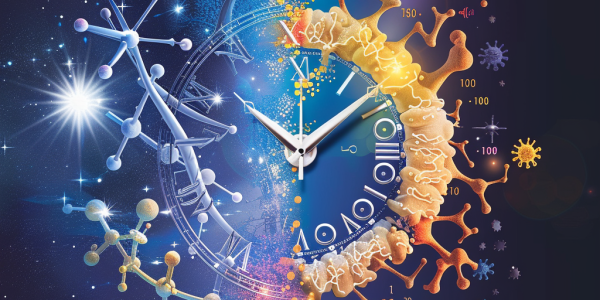Breakthrough Study Reveals Key Role of CK1δ in Regulating Circadian Rhythms
Recent research from Duke-NUS Medical School and UC Santa Cruz reveals how Casein Kinase 1 delta (CK1δ) regulates circadian rhythms, impacting sleep and biological functions. Published in PNAS, the study identifies key mechanisms of CK1δ, including its isoforms δ1 and δ2, and their role in controlling our internal clock. These findings could lead to new therapies for sleep disorders and other health issues linked to circadian rhythm disruptions.
Infant Gut Microbiomes Exhibit Circadian Rhythms Independent of External Cues
New research shows that infant gut microbiomes have circadian rhythms, even when cultured outside the body. The study found that age plays a more crucial role in microbiome development than diet, debunking the common belief that diet significantly impacts the composition of the infant microbiome. The study also revealed that GOS-supplemented infant formula was more effective at promoting sustained levels of Bifidobacteria compared to formula containing Bifidobacteria.
University of Colorado Study Explores Intersection of Heart Health and Circadian Rhythm
University of Colorado Anschutz Medical Campus researchers are studying the impact of circadian rhythms on heart health, advocating for intense light therapy and chronotherapy as potential treatments for cardiovascular conditions. Dr. Tobias Eckle’s work highlights the potential of aligning medication administration with the body’s internal clock and personalized treatments based on gender differences in cardiovascular disease.



